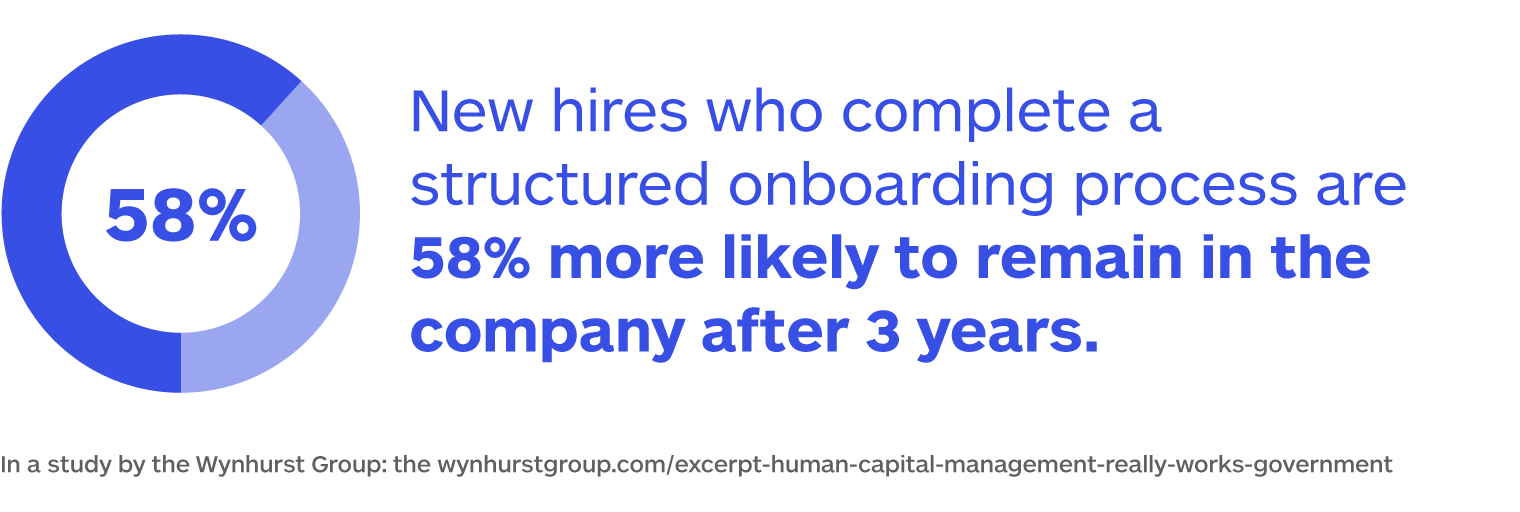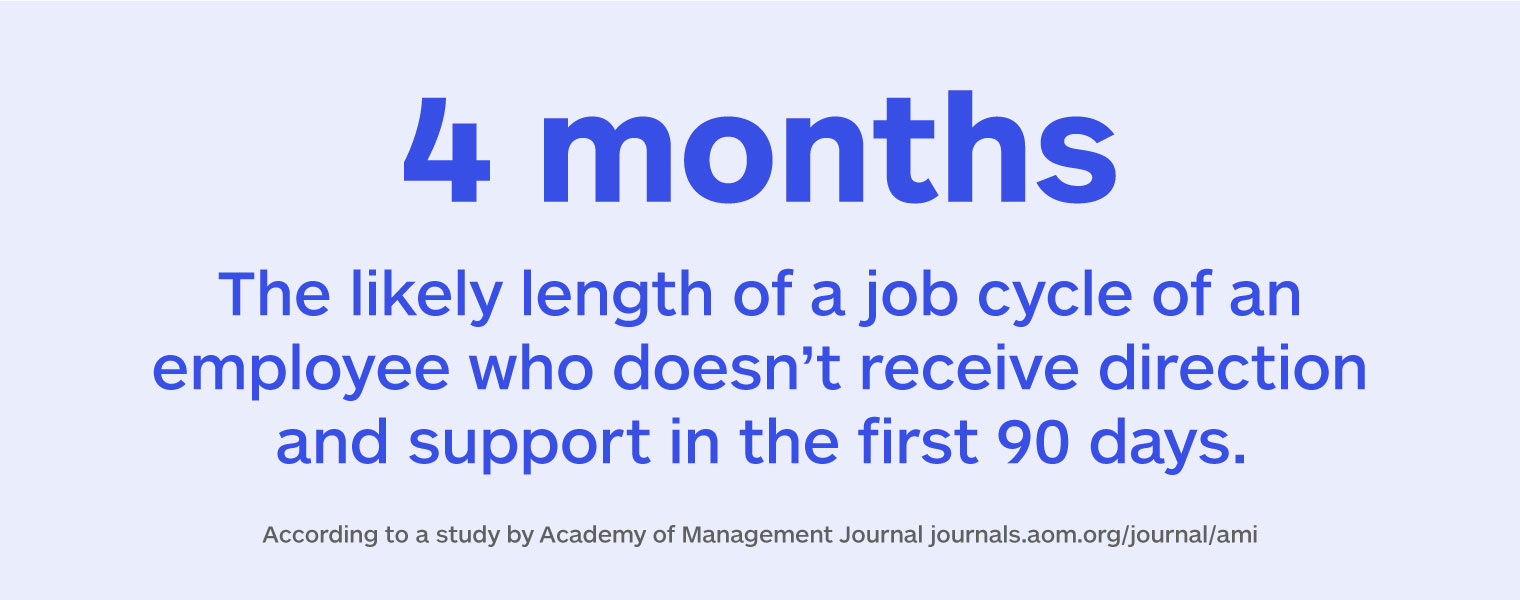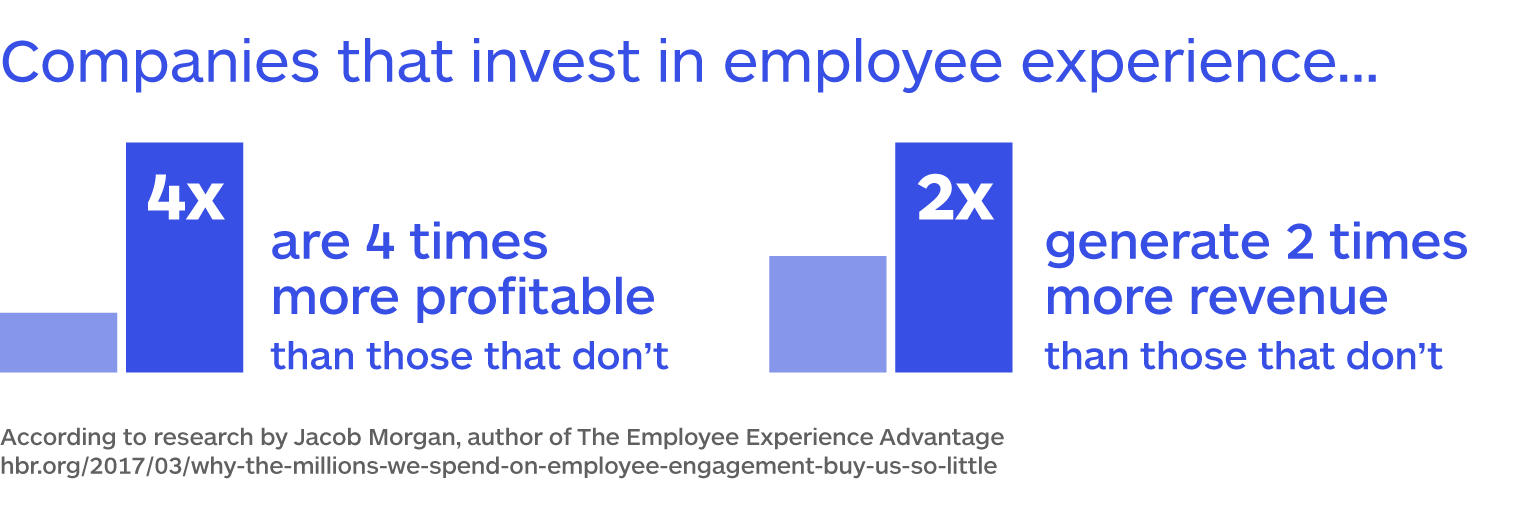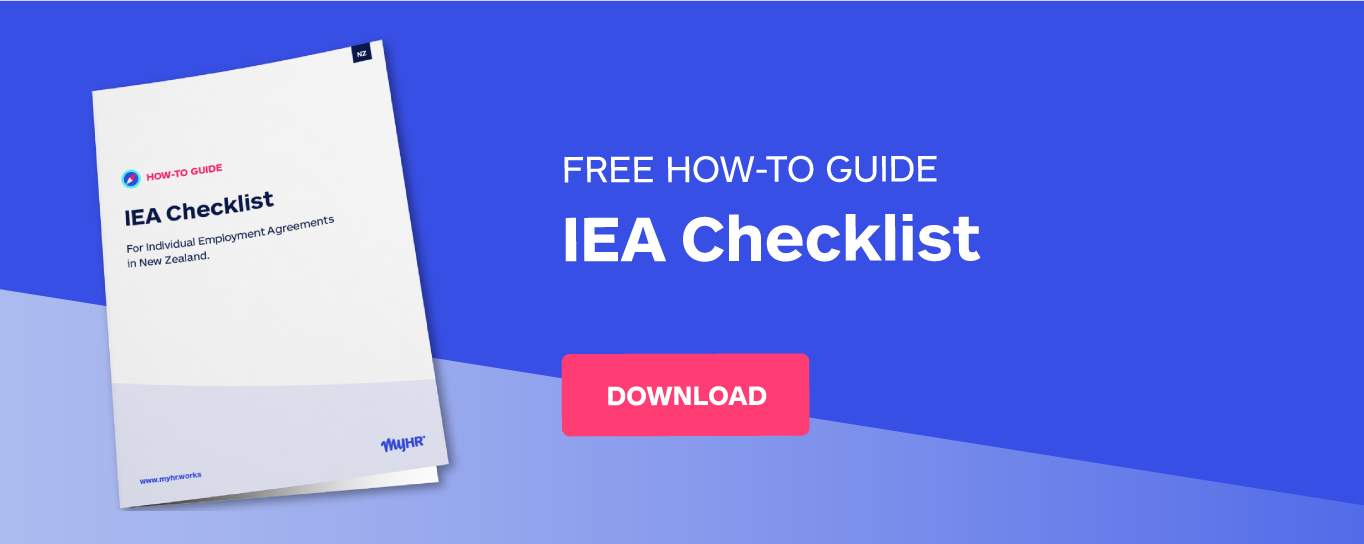The beginning of employment is such a crucial time. As an employer or manager, you've got the person selected for the role coming in to the business and you want them to get off to a good start, to quickly feel at home, and to start performing as fast as possible. Your new employee wants to get off on the right foot, too. They want to quickly find their place, to feel welcome and supported in their new workplace, and to start contributing.
It's a time for laying the foundations of a productive and healthy relationship that will lead a new employee to be a skilful, valued team member who sticks with the company and helps drive its success.
The process of bringing new hires into a company used to be known as induction or initiation, but these days is more commonly called onboarding.
Onboarding works best when it is a broad, well-designed process that gives each new employee all the tools, information, and insight they need to become an effective team member, while at the same time integrating them with the business, its people and culture.
The foundation document in all this is the employment agreement (formerly known as an employment contract). The employment agreement sets out the terms and conditions that govern the employment relationship and, by law, every employee must have one.
Because of its legal weight, the employment agreement is vital in setting expectations and stating what all parties are entitled to, and it provides a detailed reference should there be any issues or misunderstandings down the track.

In this white paper, we take a close look at the initial, formative period of employment, exploring why onboarding is such an important process and how to get it right, what to watch out for when you create employment agreements, and why it's useful for companies and staff to have other important policies and procedures in writing.
The importance of onboarding
Taking on a new team member is a big decision, especially for small businesses, and the recruitment process can be time-consuming and costly. Finding the best person for the job is an important first step, but it's what happens when the person actually starts work that can make or break their success as an employee.
Even if it's an internal promotion, there's a mix of excitement and nerves when a new person starts a job. As an employer, you're unsure if the candidate who shone on paper and during interviews is actually going to excel in the role. You will have chosen them based on their skills and aptitude, but there's still a lot for them to learn, from the physical basics of the workspace to who their co-workers are, what technology and tools they will use, and the wider company culture.

This is where a comprehensive onboarding programme comes in to give your new employee and the business the best possible chance at success. It's about realising potential using a structured approach that fully prepares the person for their position and assists them as they grow into it.
For the business, it means your new employee can become a productive team member in the shortest time possible, so any dip in productivity or customer service is minimised. A well-designed onboarding system can deliver targeted training and orientation, speeding up proficiency and minimising obstacles.
Instead of spending long hours on instruction, managers can focus on building rapport and learning about the new team member's talents and aspirations, which helps ground the employment relationship in mutual understanding and trust.
If the new employee feels valued and supported, they will be better able to concentrate on getting comfortable with their position and the team around them. As well as confirming they made the right decision to join the company, effective onboarding establishes that their performance and success is important and planned.
This all sets a platform for long-term performance, achievement, and loyalty. Research by the Wynhurst Group found new hires who completed a structured onboarding process were 58 percent more likely to remain with the company 3 years later.
Another study published in the Academy of Management Journal found that new employees who didn't get the right direction and support in the first 90 days were unlikely to last much longer than four months in the job. Given the investment required to hire a new employee, failure to properly onboard them is a significant cost to the business.
Of course, despite the best intentions, things can get bumpy. Proper onboarding gives you the best chance of spotting problems early, so you can implement strategies to overcome them. If it all goes badly wrong and there is no option but to exit the person from the business, it will be faster and easier if you have followed a structured process.
This has become especially important since 6 May 2019, as employers with 20 or more employees can no longer use 90-day trial periods and will need official probationary periods to assess new employees.
How to get onboarding right
Planning the way you bring new employees into the business should start before you even recruit for a position. You want to make the onboarding process as smooth and inclusive as possible, so any new person wants to be part of the team and feels connected to the organisation.
Remember, part of recruitment is making the business attractive to candidates, but any promises made can be quickly overshadowed by a bad introduction.
Think about how each step is structured. Create a checklist (or checklists) to formalise the induction programme. This will help you and your new hire understand the process, and it will make sure you don’t overlook anything important.
Before the new person starts, make sure the job offer, employment agreement, and any pre-employment checks are done efficiently. Order any equipment or resources, so they have everything they need on the first day. Contact them personally to welcome them and confirm their start date. Let the rest of the business know about the new person.
There will be a lot to cover when they do start work, from simple things like getting to know the building and the company IT system to understanding the demands and intricacies of the role itself.

Training is a big part of onboarding, but your programme should be designed to build trust, connection and confidence as well as competence. While it's essential that the new person understands the company's expectations, goals, and ground rules, it's also important for them to have someone they can talk to if they have questions or problems.
Try to focus on the individual. Take a step back and reflect on what it would be like to be a new employee, how the business and its culture would appear, and how the various roles and responsibilities intersect with theirs. Personalising the onboarding experience will make it more engaging and meaningful, which will help connect your new employee to the company and the existing team.
Technology can help. As well as making it more enjoyable and effective, components such as targeted online training can lighten the burden on management.
Like all other performance processes, you need to set some key objectives that will give everyone a clear yardstick to measure success against. Schedule regular review meetings throughout the induction period to check all is going to plan and to make sure you are able to take remedial action, if needed.
Onboarding should be seen as the start of a long-term journey of learning and development. US research by the MIT Sloan Management Review found it takes anywhere from 8 to 26 weeks for an employee to reach full productivity, and in the modern working environment, most people will only view that as a base that sets them up for ongoing growth with the business.
Getting employment agreements right
Most New Zealand employers are aware of the importance of the employment agreement. It is the fundamental legal contract between the business and an employee, and under the Employment Relations Act 2000, every employee – including casual and part-time workers – must have a written employment agreement.
The terms and conditions of the agreement can either be negotiated between the employer and the employee (an individual employment agreement) or between the employer and a union representing workers (a collective employment agreement), but either way, it is vital to ensure the document is well-written and clear, so both the employer and the employee know what is expected of them and what each party is entitled to.
For starters, there are certain clauses every employment agreement must contain, things like a description of the work, the place of work, agreed hours (or an indication of the hours), the wage rate or salary and how the employee will be paid.
Every worker has a number of minimum statutory rights, such as minimum wage rates, paid annual and public holidays, paid rest and unpaid meal breaks. Even if you don't state these in an employment agreement (or you have other terms in the agreement), these minimum rights are still legally binding.
Clearly defining the terms and provisions, and making sure they match the reality of the job the person needs to do, the hours and frequency of their work, and other terms and conditions, is key.
Be careful to ensure each employee is on the right type of employment agreement (permanent, fixed-term, or casual). If you agree to a probationary or trial period, you must include details of this, as well as any expectation of on-call availability, the procedure for shift changes, and the process for resolving employment relationship problems or personal grievances.
From there you can add other clauses to suit the needs of the business and the employee. Think carefully about whether you may need to change the employee's hours or place of work, or make provision for cancelling shifts.
If the document is clear and legally robust it will reduce the likelihood of problems or disputes down the track. If any misunderstanding or problem should arise, then you can refer to the employment agreement to clarify things.
By following the right steps, it is reasonably easy to ensure your employment agreements comply with the law. It's not worth the risk trying to take short-cuts, so if you're not sure, seek advice. You don't want to face an employment dispute, a fine from the Labour Inspectorate, or end up in the Employment Court because there are issues with the employment agreement (or you don't have one for each of your team members).
Remember, an employment agreement is based on good faith and mutual understanding, and it forms the basis of the relationship between you and your employee. Having a watertight agreement will get you off to a good start and provide an honest foundation to build on.
Creating other company policies
Drafting an employment agreement should make you reflect on the business as a whole; how you want your workplace to run and the things you want to emphasise. You may be inclined to reference every policy and guideline the company has, but before you do, you should think about whether you want to give those things the legal authority of a clause in the agreement.
A good rule to follow is that other than the provisions you are legally obliged to include, only add those that you are confident you want to bind your workers to and that you want to be bound by.
From there, it is better to create other non-contractual policies and procedures (sometimes known as the house rules). You will then be able to alter them if things in the business or wider market change, rather than having to go through the negotiations involved in changing the employment agreement.
There's no need to go overboard and draft up policies to cover absolutely every aspect of the business. They should provide useful information on responsibilities and rights in crucial areas, supporting but not duplicating or contradicting your employment agreements.
We recommend a good place to start is having policies on things like health & safety, bullying and harassment, staff conduct, customer service standards, IT and device use, and how to manage expense claims.
Make sure the policies are tailored to the needs of your business, and keep them as simple as possible. The better everyone in the organisation understands what they are expected to do and how they are expected to act, the more likely they are to do it. Ambiguity can lead to misunderstandings, disagreements, and mishaps.
Help is out there
Many small and medium-sized companies find it can be a challenge to make sure all their employment agreements and other documentation are in order and legally sound.
For Zyber – a leading website design agency – everyone in the business is so busy, focusing on completing projects and looking after customers, it was getting hard to take care of the paperwork.
So the company switched to a cutting-edge HR solution that covers all their people and employment needs and ensures they are always compliant. The change has made hiring new employees and bringing them into the business quicker, easier, and more certain.



